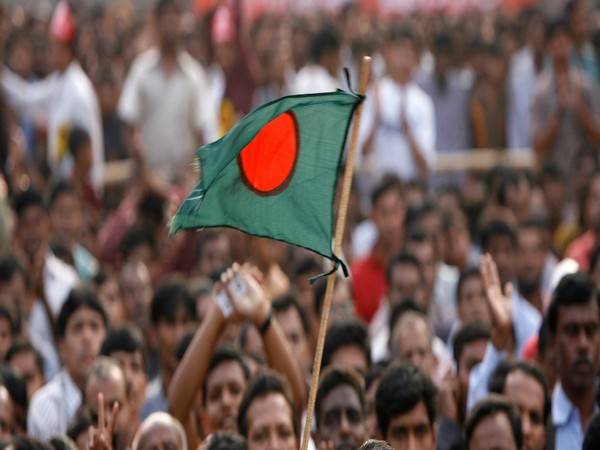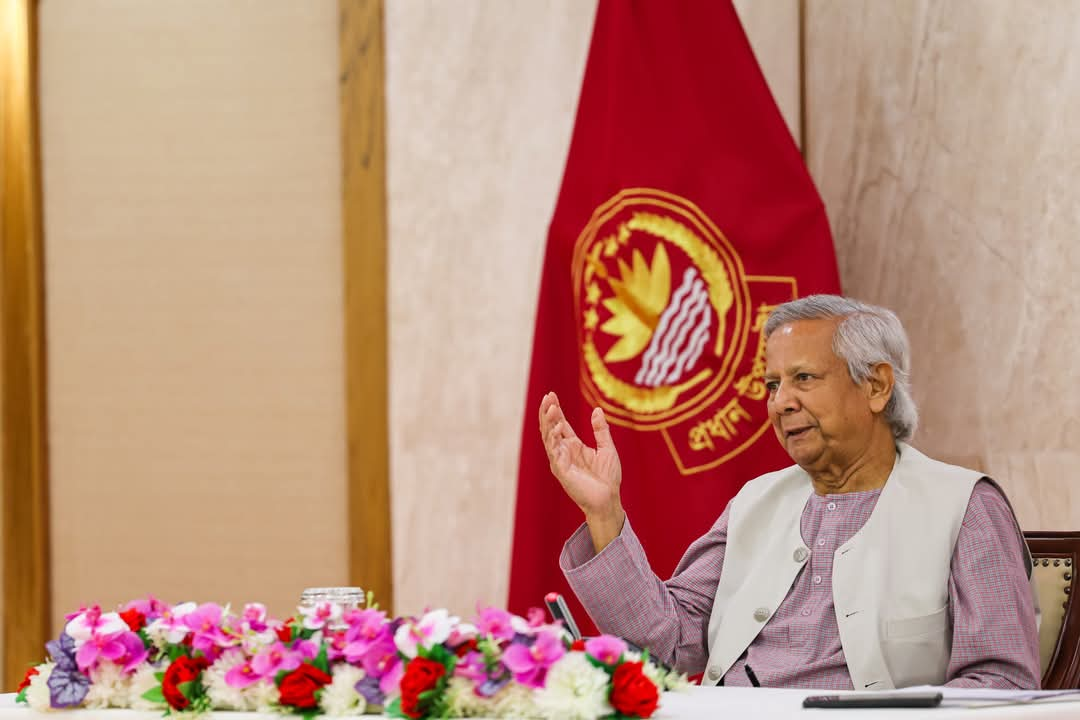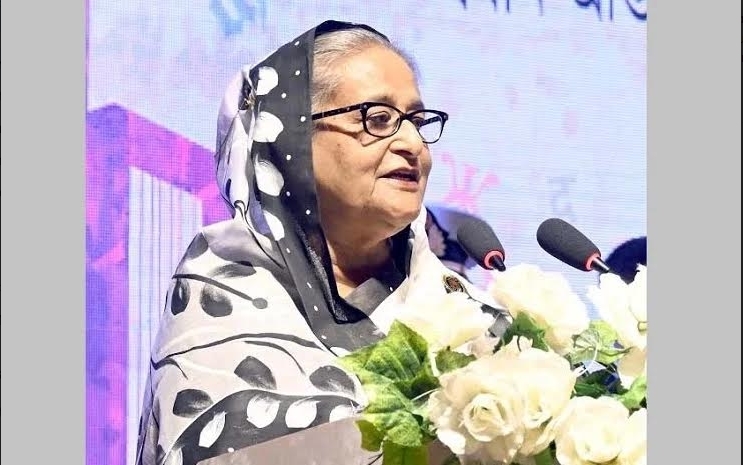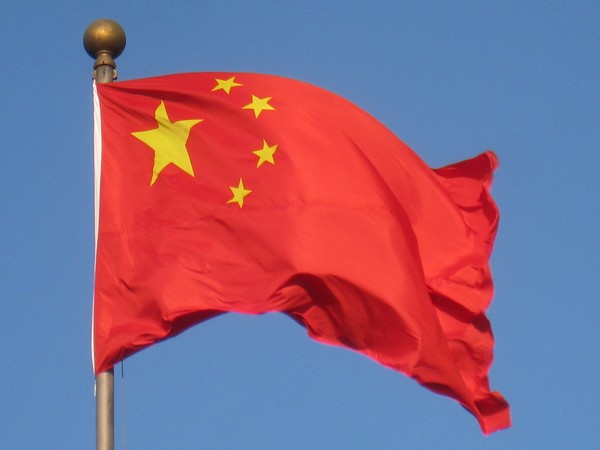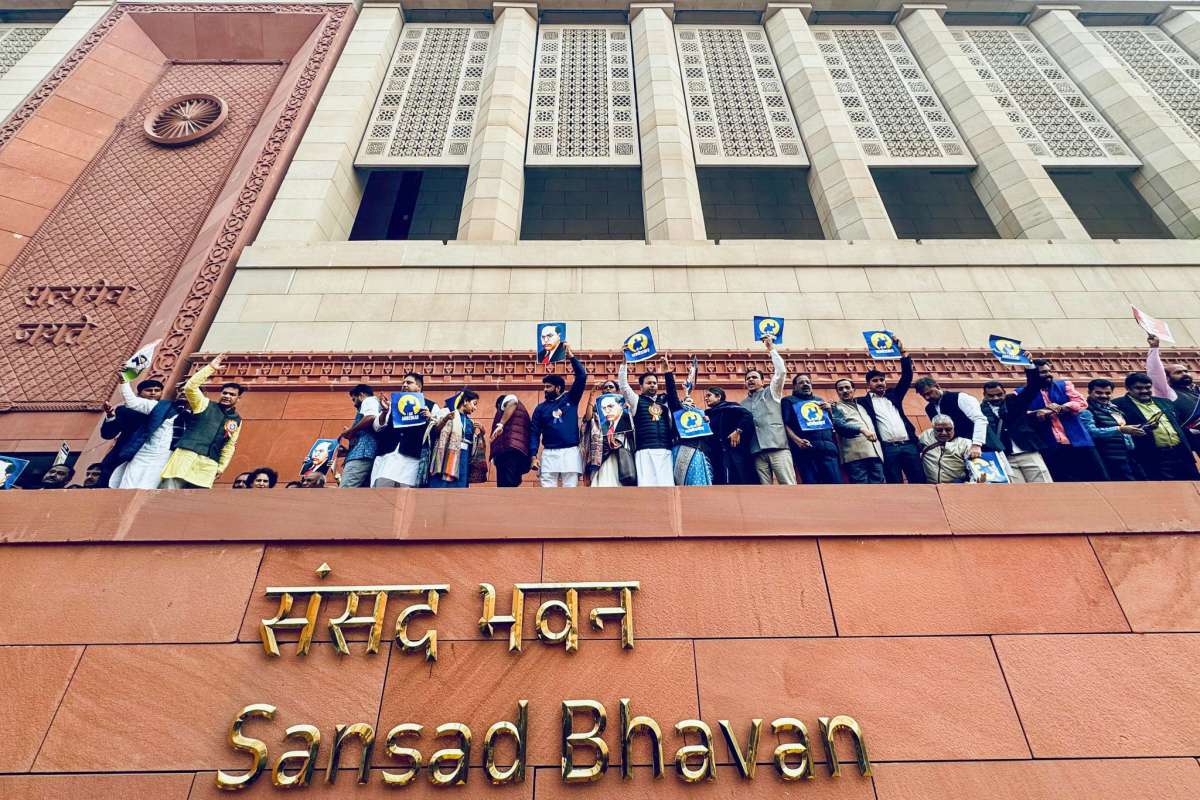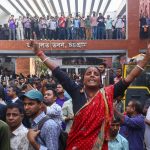What worries most Bengali liberals is that the Jamaat-e-Islami has actually managed to strike a deal with the US through their Pakistani mentors who are now pushing for a united lslamist alliance that brings together all like-minded but often competing groups vying for a slice of the Islamist vote bank…writes Subir Bhaumik
As the countdown begins on Bangladesh’s parliament polls scheduled for Jan 2024, there seems to be a resurgence of Islamist radicalism with both major parties, ruling Awami League and main Opposition Bangladesh Nationalist Party (BNP), looking to cement alliances with smaller right-wing Islamic groups.
The country, born in 1971 of a bitter and bloody civil war in undivided Pakistan, was wedded to secular linguistic Bengali nationalism, so far upheld by the Awami League, which led the war of independence with Indian support. But anticipating a tough challenge in the upcoming election from the BNP-JAMAAT alliance, the Awami League is seeking an electoral understanding with an Islamist coalition named Liberal Islamic Alliance comprising six Islamic and like-minded political parties formed on September 1.
As the BNP -Jamaat-e-Islami coalition has been joined by leading Islamic parties in calling for a boycott of the upcoming polls unless they are held under a neutral caretaker dispensation (an administration that is non-party with eminent people not linked to any party whose job is to get the elections done), the Awami League is keen to get the Liberal Islamic Alliance ( LIA) to participate in the polls to be able to claim that the polls were inclusive.
The six Islamic parties, newly registered with the Election Commission, that make up the LIA are Bangladesh Supreme Party led by Syed Saifuddin Ahmed Maizbhandari, Bangladesh Islami Oikya Jote led by Misbahur Rahman Chowdhury, Krishak Sramik Party led by Farhanaz Haque, Aashiqeen-e-Awlia Oikya Parishad led by Alam Noori Sureshwari, Bangladesh Janodal and National Awami Party (NAP Bhashani).
The LIA’s formal launch will be made from a rally on October 21 at the south gate of Baitul Mukarram National Mosque, where the Islamist alliance plans to gather over 3 lakh people (300,000), said LIA insiders. But the LIA insiders also said the alliance is expecting a large number of leaders from Islamist groups like the Islami Andolon Bangladesh (IAB), Bangladesh Khelafat Majlish, Khilafat Andolan, Jamiat-e-Ulama-e-Islam and Bangladesh Nezami Islami Party to come over to their fold and contest polls.
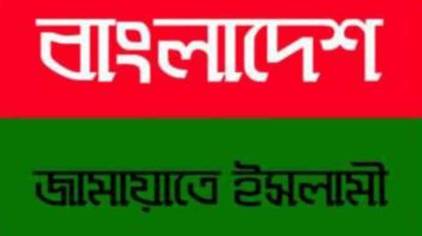
At the moment, 44 political parties, 14 of them Islamist parties, are registered with the Election Commission, a mandatory condition for contesting in any election. The participation of some of these Islamist parties in the election will help the ruling party to portray the polls as participatory in the absence of opposition BNP and other major Islamist parties.
But top Bangladesh intelligence officials suspect even the Jamaat-e-Islami may part ways with the BNP, which is against joining polls without a caretaker-supervised poll, and field a large number of candidates under the LIA banner.
So far Jamaat’s infiltration has not been proven. “Till now we’re not aware of such an alliance. Last month leaders of ruling 14 party alliance had a meeting. They have decided not to expand the present structure,” says Shahriar Kabir, a top anti-fundamentalist leader whose group pushed and got going the 1971 War Crimes trials to punish Jamaat leaders who joined the Pakistan army in massacres.
The pro-Pakistan Jamaat-e-Islami, which backed the Pakistan army in its horrible atrocities, has been a marginal player even after it got backing from successive military regimes of General Ziaur Rahman and Hussain Mohammad Ershad. But the BNP led by Khaleda Zia valued it and struck an electoral deal with it to tap into its Islamist vote-bank, however small.
Sensing that it may get a huge political boost if it takes the field in the event of a BNP poll boycott which may swing BNP voters to its fold, the Jamaat has seriously considered contesting the parliament polls. But since it was deregistered as a political party a decade ago after the Supreme Court ruled its manifesto and party constitution as “incompatible with Bangladesh Constitution”, the Jamaat-e-Islami’s legal thrust for regaining Election Commission’s recognition has run into rough weather with a case filed to upturn Jamaat’s appeal. “Now that the verdict on the legal challenge to Jamaat’s appeal for regaining registration has run into rough weather and the matter is hanging in court, it may well suit its hardline Islamist leaders to field candidates in most seats under LIA banner, much as it would be welcomed by LIA leaders who are close to Awami League to fight the polls as a Jamaat front,” said Sukharanjan Dasgupta, veteran columnist and author of books on Bangladesh.
“It is a win-win for both Awami League and Jamaat-e-Islami. “If LIA as a Jamaat front emerges as the main Opposition with a substantial vote-share, it sets them up as a future contender for power with an Islamist agenda. For the Awami League, such a scenario helps it to claim a fair and inclusive election to silence Western nations and organisations who doubt Hasina’s intentions,” continues Dasgupta.
Many fear that Hasina, in an effort to neutralise her bête noire Khaleda Zia, may “actually invite a crocodile by excavating a canal” (a popular Bengali proverb), if the Awamis let the LIA get away with a good number of seats in a friendly fight.
“The Jamaat-e-Islami is the real enemy of all secular, liberal democratic forces in Bangladesh, the enemy of our independence. If they gain legitimacy from any exercise that may suit the short-term gains of Awami League, the future of Bangladesh as a moderate Muslim nation will be called to question,” said former intelligence official Benu Ghosh who has followed Bangladesh for years.
What worries most Bengali liberals is that the Jamaat-e-Islami has actually managed to strike a deal with the US through their Pakistani mentors who are now pushing for a united lslamist alliance that brings together all like-minded but often competing groups vying for a slice of the Islamist vote bank.
The Jamaat-e-Islami is playing it smartly. On the one hand, they are likely to field hundreds of candidates by hijacking the LIA which is led by a woman, but on the other hand, they plan to join the BNP and other Islamist Opposition groups in violent street protests to back the caretaker demand. If the Awamis ward off the agitation and return to power, they will still manage a substantial parliamentary presence under cover of LIA. If Hasina succumbs to street power, the Jamaat can hope to ride to power with BNP through the caretaker route.
Most Bengali liberals no longer feel the Awami League can defend the core national values of secularism, liberalism and participatory democracy because the “ soft Islam” adherents in the party have a powerful grip on the Hasina administration. ”The time has come to launch a broad-based pro-liberation platform, one that will fight to bring back the 1972 secular Constitution, launch an all-out war against corruption and price rise and restore the economy reeling under crony capitalist free run that has led to huge money laundering and bank defaults,” said a very senior Awami League leader, one of the organisers of the 1971 Liberation war. But he was unwilling to be identified because he feared retribution.
Another senior leader points to the rapacious Beximco group whose founder Salman F Rahman is PM Hasina’s private investment adviser. “In spite of huge bank defaults running into thousands of millions, Beximco has just got a loan of 22000 crore (220 billion) Taka. How is that possible without clearance from the very top?” he said. So powerful is Rahman that a TV channel during a recent interview asked him if he fancied himself as a “super minister”. “Rahman’s influence on Hasina is pernicious because his company is at the heart of corruption allegations the PM faces but also because he is pushing for a Pakistan-type puritanical version of Wahabi Islam in state policy that sits uneasy with the syncretic tradition of Bengali Islam,” said a minister of Hasina government, again on condition of strict anonymity.
(The article first appeared in dailyasianage.)
